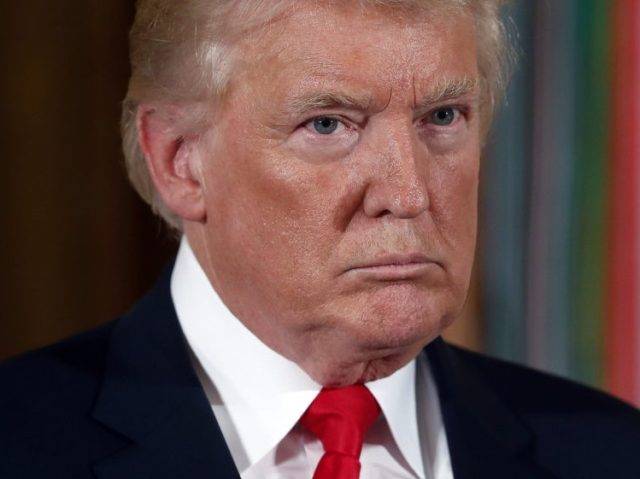U.S. President Donald Trump has ordered the American military to elevate the Pentagon’s Cyber Command to a new unified combatant command, signaling a growing emphasis on combating cyber attacks.
“This new Unified Combatant Command will strengthen our cyberspace operations and create more opportunities to improve our nation’s defense,” the commander-in-chief said in a statement. “The elevation of United States Cyber Command demonstrates our increased resolve against cyberspace threats and will help reassure our allies and partners and deter our adversaries.”
“Through United States Cyber Command, we will tackle our cyberspace challenges in coordination with like-minded allies and partners as we strive to respond rapidly to evolving cyberspace security threats and opportunities globally,” he added.
The new move would separate Cyber Command from U.S. Strategic Command (STRATCOM), charged with military space operations, nuclear weapons, and missile defense. Currently, Cyber Command operates under STRATCOM.
“It would give Cyber Command leaders a larger voice in arguing for the use of both offensive and defensive cyber tools in future conflicts,” explains Reuters.
“United States Cyber Command’s elevation will also help streamline command and control of time-sensitive cyberspace operations by consolidating them under a single commander with authorities commensurate with the importance of such operations,” adds President Trump in the statement. “Elevation will also ensure that critical cyberspace operations are adequately funded.”
The same military officer, Navy Adm. Michael Rogers, has been commanding both the National Security Agency (NSA), America’s leading electronic spying agency, and Cyber Command organizations out of Fort Meade, Maryland, located an estimated 30 miles north of the nation’s capital.
“In connection with this elevation, the Secretary of Defense is examining the possibility of separating United States Cyber Command from the National Security Agency,” revealed President Trump. “He will announce recommendations on this matter at a later date.”
According to Reuters, “a 60-day study” will determine whether Cyber Command would be separated from NSA. Elevating Cyber Command will “expand the number of the Defense Department’s unified combatant commands to 10, putting cyber warfare on an equal footing with the Strategic Command, the Special Operations Command, and regional commands,” explains the Agence France Press (AFP) news agency.
“Trump’s statement suggested the final shape of where the new unified command will fit into the Pentagon remains unsettled,” it adds.
Gen. John Hyten, the STRATCOM commander, told U.S. Senators in April that his troops, which then-included Cyber Command, were at risk of losing their military advantage over their enemies.
“One of our biggest challenges in the future will be staying ahead of the pace of change we see in our adversaries. We have a problem delivering timely responses to new threats. We don’t move fast enough from concept to capability,” testified the top U.S. general.
He stressed that “cyberspace forces” are “critical to the American way of war in every theater,” adding, “Our ability to deter major power conflict also depends on our ability to deter in all domains – particularly space and cyber.”
Gen. Hyten identified Russia, China, Iran, and North Korea as the top cyber threats facing the United States, noting that Pyongyang “has demonstrated its capability and willingness to conduct destructive cyber-attacks against the United States and its allies.”

COMMENTS
Please let us know if you're having issues with commenting.